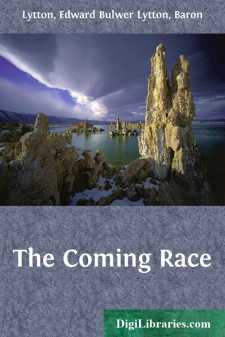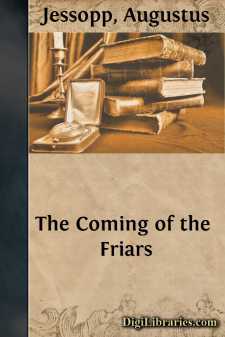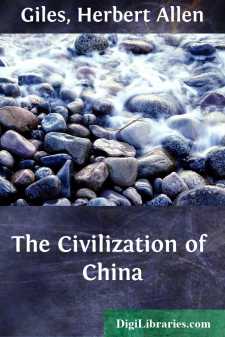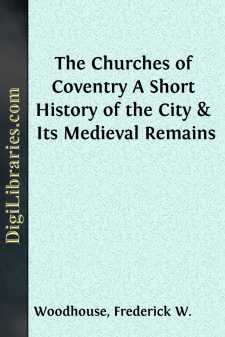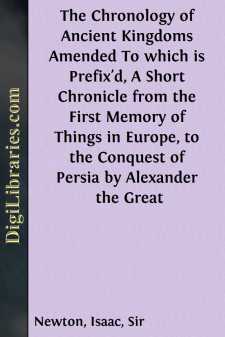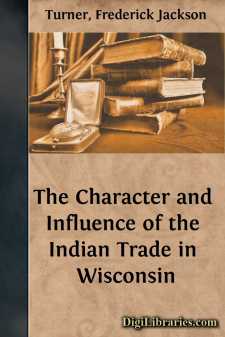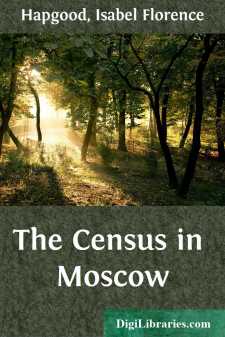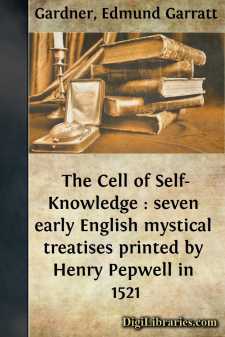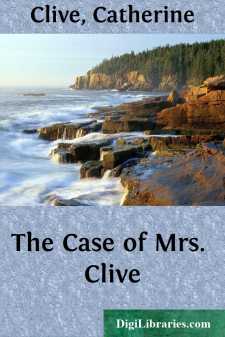History
- Africa 30
- Americas (North Central South West Indies) 50
- Ancient 68
- Asia 58
- Australia & New Zealand 8
- Canada 41
- Caribbean & West Indies 1
- Civilization 20
- Eastern Europe 12
- Europe 310
- Expeditions & Discoveries 60
- General 77
- Historical Geography 1
- Jewish 9
- Latin America 3
- Medieval 8
- Middle East 13
- Military 248
- Revolutionary 8
- Study & Teaching 5
- United States 353
- Western Europe 56
- World 13
History Books
Sort by:
Chapter I. I am a native of _____, in the United States of America. My ancestors migrated from England in the reign of Charles II.; and my grandfather was not undistinguished in the War of Independence. My family, therefore, enjoyed a somewhat high social position in right of birth; and being also opulent, they were considered disqualified for the public service. My father once ran for Congress, but...
more...
by:
Augustus Jessopp
THE COMING OF THE FRIARS. Sweet St. Francis of Assisi, would that he were here again!—LordTennyson. When King Richard of England, whom men call the Lion-hearted, was wasting his time at Messina, after his boisterous fashion, in the winter of 1190, he heard of the fame of Abbot Joachim, and sent for that renowned personage, that he might hear from his own lips the words of prophecy and their...
more...
CHAPTER I. SKETCH OF SOCIAL HISTORY. The Importation of the Africans—Character of the Colored Population in 1860—Colored Population in British West Indian Possessions—Free Colored People of the South—Free Colored People of the North—Notes. Professor DuBois, in his exhaustive work upon the "Suppression of the African Slave-Trade," has brought within comparatively narrow limits the...
more...
CHAPTER I—THE FEUDAL AGE It is a very common thing now-a-days to meet people who are going to "China," which can be reached by the Siberian railway in fourteen or fifteen days. This brings us at once to the question—What is meant by the term China? Taken in its widest sense, the term includes Mongolia, Manchuria, Eastern Turkestan, Tibet, and the Eighteen Provinces, the whole being...
more...
CHURCHES OF COVENTRY MONASTERY AND CITY The opening words of Sir William Dugdale's account of Coventry assert that it is a city "remarkable for antiquity, charters, rights and privileges, and favours shown by monarchs." Though this handbook is primarily concerned with a feature of the city he does not here mention—its magnificent buildings—the history of these is bound up with that of...
more...
by:
Isaac Newton
CHAP. I. Of the Chronology of the First Ages of the Greeks. All Nations, before they began to keep exact accounts of Time, have been prone to raise their Antiquities; and this humour has been promoted, by the Contentions between Nations about their Originals. Herodotus tells us, that the Priests ofEgyptreckoned from the Reign ofMenesto that ofSethon, who putSennacheribto flight, three hundred forty and...
more...
INTRODUCTION. The trading post is an old and influential institution. Established in the midst of an undeveloped society by a more advanced people, it is a center not only of new economic influences, but also of all the transforming forces that accompany the intercourse of a higher with a lower civilization. The Phœnicians developed the institution into a great historic agency. Closely associated with...
more...
The object of a census is scientific. A census is a sociological investigation. And the object of the science of sociology is the happiness of the people. This science and its methods differ sharply from all other sciences. Its peculiarity lies in this, that sociological investigations are not conducted by learned men in their cabinets, observatories and laboratories, but by two thousand people...
more...
FROM the end of the thirteenth to the beginning of the fifteenth century may be called the golden age of mystical literature in the vernacular. In Germany, we find Mechthild of Magdeburg (d. 1277), Meister Eckhart (d. 1327), Johannes Tauler (d. 1361), and Heinrich Suso (d. 1365); in Flanders, Jan Ruysbroek (d. 1381); in Italy, Dante Alighieri himself (d. 1321), Jacopone da Todi (d. 1306), St. Catherine...
more...
by:
Catherine Clive
INTRODUCTION Among other things, the licensing act of 1737 stipulated that Covent Garden and Drury Lane exclusively were the patented and licensed theaters (respectively) in London, a fact directly related to the revolt of prestigious players six years later. Although there were sporadic performances of "legitimate" drama in unlicensed playhouses between 1737 and 1743, full-time professional...
more...


